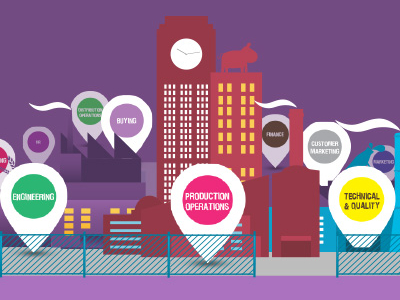What’s it all about then?
As a retail assistant in a food business you could be employed in a large supermarket, greengrocers or even a small specialist food shop or delicatessen; this means that your duties can vary.
You’ll often be the first point of contact for customers, offering them a polite and effective service, should you be stacking shelves or working on the till.
You’ll help keep the store well stocked with products and ensuring that these are properly displayed and correctly rotated, particularly foods with a short sell by date.
What might I be doing?
There are loads of different jobs you might be doing as a retail assistant, including:
- Serving customers
- Unloading deliveries
- Stacking shelves and replenishing stock
- Answering customer queries
- Advising customers
- Making sure everything is clean and tidy
- Ordering stock
- Dealing with refunds
- Handling complaints
- Recommending products
- Assisting customers with queries
What will be expected of me?
To be an effective food retail assistant you’ll need to demonstrate a high level of responsibility and trustworthiness as you’ll have to learn a range of jobs and might be doing lots of different things throughout your shift, many of which have low levels of supervision. The role also requires someone who is happy working in a variety of jobs as needed and is prepared to learn how to do these effectively.
You’ll have to enjoy dealing with customers and helping people, not all of whom are as polite as you might hope; remember that the sales assistant is usually the link between the customer and management.
As you gain experience you will be expected to learn some degree of commercial awareness so that you can contribute to product merchandising and displays; if you’re working on the butcher’s or fishmonger’s counter in a large supermarket you’ll also be expected to learn detailed product knowledge and make informed recommendations.
What can I expect?
Your job as a retail assistant will typically involve a 40-hour week but this may cover evenings and weekends, depending on your employer; working hours coming up to holidays can also be longer in retail so be ready for this as well.
You can also expect to be on your feet for a lot of the time, depending on what you do on any given day and where you’re employed.
And you can expect to have customers asking for your advice throughout the day,
which could range from a complaint to simply locating a product.
As a retail assistant you can expect the job to be demanding but also very rewarding as you’ll be helping people to have a positive shopping experience.
What qualifications do I need to get in?
There aren’t any set requirements for the role of retail assistant and you may have start your career working in retail having left school with at least 5 good GCSEs, perhaps as an apprentice.
Remember that English and Maths GCSEs are very important, and many retailers will require you to have these because you will likely have to record things and work with money.
You could also consider taking a retail related qualification at college or potentially a Higher Level Apprenticeship.
If you work for a large employer, you’ll be given structured training to enable you to do the job effectively.
If you prefer a more academic route, you could also consider part time study which could assist your career development.
Many companies like applicants who have some retail experience so any part-time work while you’re at school could prove very advantageous.
Where would I get these qualifications?
For apprenticeships and further education courses you should contact your local careers advisor or college in the first instance and see what’s available that suits your aspirations.
What about further training?
There are all sorts of qualifications you could do, if a career in retail is for you.
Your employer may even help pay for your training as they will ultimately benefit too!
Anything else I might need to know?
In a small shop you can expect to be given a lot of responsibility quite quickly; working in a larger store means more opportunities to train and gain promotions and pay rises.
As you gain experience you could look at moving into a supervisory or management role, or possibly a job in merchandising or purchasing.
Alternatively, you might think of opening a retail premises yourself, perhaps as a specialist supplier or offering a specific service to customers.
Retail continues to change and develop, with the internet becoming ever more important; however, people love to shop, and the sector remains vitally important to the national economy!
 cy
cy





